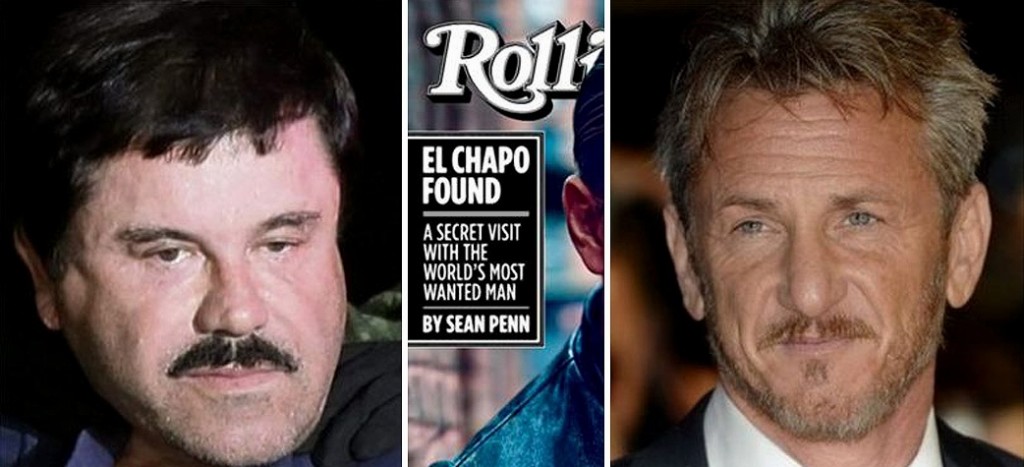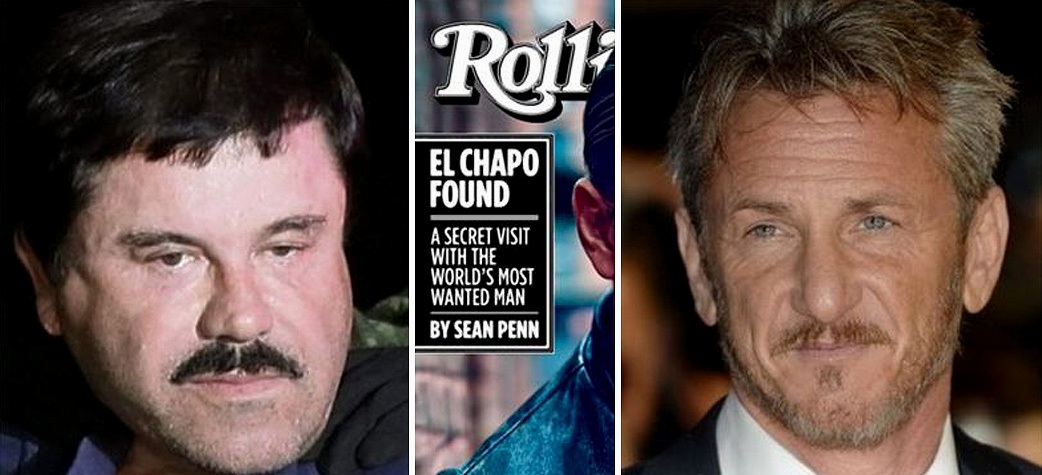
“Mission accomplished: We have him.”
No sooner had Mexican President Enrique Peña Nieto tweeted that message to Mexico’s citizens announcing the recapture of Joaquin Guzmán Loera, than the other shoe dropped…
Rolling Stone magazine published an interview with “El Chapo,” The El Chapo, the notorious drug kingpin of the Mexico’s Sinaloa drug cartel. Getting an interview like this is akin to getting an interview with bin Laden or some Nazi bigwig.
No doubt there were more than a few “high-fives” around the San Francisco offices congratulating themselves for not only getting the interview but their good fortune in publishing on the heels of his capture.
With a fortune estimated to be $1 billion, Guzmán boasts, “I supply more heroin, methamphetamine, cocaine and marijuana than anybody else in the world. I have a fleet of submarines, airplanes, trucks and boats.”
Rolling Stone Co-founder and Publisher Jann Wenner must be wetting himself with the sales of the latest issue (with a cover photo of Leonardo DiCaprio, no less), along with a boat-load of free media attention.
However, all of this comes with controversy.
“…after its publication,” The New York Times writes (Jan. 10), questions have been raised about the ethics for the magazine in dealing with Mr. Guzmán, a criminal being sought on charges of drug trafficking and murder, and in allowing him to approve what would ultimately be published about him. The Republican presidential candidate Marco Rubio, speaking Sunday on This Week, on ABC News, acknowledged Mr. Penn’s “constitutional right” to meet with Mr. Guzmán, but called the interview ‘grotesque.’
“The reporting and editing of the article were closely held,” The Times continues, “in part, to avoid the authorities. ‘I was worried that I did not want to provide the details that would be responsible for his capture,’ Mr. Wenner said. ‘We were very conscientious on our end and on Sean’s end, keeping it quiet, using a separate protected part of our server for emails.’ ” …
“ ‘We made sure we didn’t have any information to give them, other than what we published,’ [Wenner] said. ‘But we would have done everything that a traditional journalism operation would have done in terms of protecting sources.’ …
“There is a long history of journalists interviewing subjects who were either on the run from the authorities or who were considered unsavory for other reasons,” The Times continues. “Osama bin Laden was interviewed through the late 1990s, after he had declared jihad on the United States (though before the Sept. 11 attacks). In 2013, the former basketball star Dennis Rodman went to North Korea to meet with that country’s repressive dictator, Kim Jong-un, for Vice.”
While The Times points out the past precedents for interviews such as Guzmán’s, the bin Laden interview took place before 9/11, and Rodman’s visit to the North Korean dictator was covered by the media and came about as a result of Kim’s worship of the basketball star.
Kelly McBride writes for The Poynter Institute, a non-profit school for journalism. After reading the Penn interview, McBride points out more than a few things missing from the story:
“A sociologist or economist. If you want to argue that American capitalism and social structures are partially culpable for the mob state that created El Chapo’s kingdom, bring in an economic expert who’s done research in this area.
“A law enforcement specialist. There are plenty of people who argue that America’s criminalization of drugs harms Mexico. But you can’t just toss that out as an accepted fact. Your readers deserve to hear about the successful experiments in decriminalization.
“Regional economic data. Rather than letting your source proclaim that there are no options, bring in some basic economic data that provide context.
“His neighbors. Penn claims El Chapo is a ‘Robin Hood-like figure’ who improves life for the poor people of his hometown in his home state of Sinaloa. Let’s hear from them.”
Without those cross-checks, Guzmán is just another transparent self-promoter interested in getting a movie deal while attempting to justify his criminal activities as the only way to lift himself and his family from desperate poverty.
However, McBride calls attention to two of the biggest lapses in the reporting.
“A victim’s family. This may be the biggest stakeholder missing from the story.
“A Mexican newspaper editor. Cartels have terrorized journalists. Their voices would add some needed accountability.”
As a journalist, how does Sean Penn answer to the families of those whom Guzmán murdered?
In talking about the ethical principles of journalism, ethicist Michael Josephson writes, “Journalists must inspire credibility – faith and confidence in the honesty, accuracy and fairness of the information they convey.”
Without hearing from Guzmán’s neighbors and victim’s families, I remain unconvinced as to the fairness of the information in the story.
“As [a] teacher, [journalists] should inform, clarify and explain about matters of social consequence,” Josephson says, “without pandering unduly to public dispositions to be entertained and titillated.”
After all the praise for getting an exclusive interview with a notorious individual, Rolling Stone got the sensation, but lost the social consequence.
Comments










